A common theme among parents who discover their first child is gifted is, “We didn’t realize it. We thought this was normal. We didn’t have anyone to compare her to.” If adults have never experienced giftedness first-hand or spent much time with children, they might not recognize it when it is staring them in the face. It’s just “normal” in their world of parenting.
I didn’t think much about the topic of giftedness until trying to understand Caroline’s uniqueness required me to do a lot of reading and learn everything I could. She and I are so different in many ways and I wanted to understand her. What surprised me during the process is that the more I read, the more I started to think about my own giftedness and how it has shaped my life in ways I didn’t even realize.
At one point I realized that I always think of myself as smart and hardworking, but not gifted (even though I was viewed as gifted in school starting in kindergarten and benefited from that label throughout my entire education, including college). I also realized in a new way how my giftedness often makes it difficult for me to fit in in various settings. Again, I didn’t attribute it to my giftedness but personality, etc.
But in the end, I realized that I’m weird in my own way because of my giftedness. Because (let’s be honest) the truth of the matter is that most gifted people are weird in some way or another. We don’t fit in. That’s one of the difficulties of being a gifted person.
And I also realized that I have no comprehension of what it’s like to not be this way. That is also one of the difficulties of being gifted that I think parents can often miss about their children. We focus so much on dealing with the reality of our child being gifted and what that means in practical ways that we fail to acknowledge that giftedness is our child’s entire frame of reference.
Living With Gifted Overexcitabilities
For example, I have been a voracious reader my entire life. I spend hours each day reading and synthesizing information. It’s just what I do. I don’t know how to not do it. As an overexcitability, it’s like a compulsion.
The reality is that I don’t know how people go through life and don’t take in information and think all the time because it is all I know. I don’t know what it is like to not be endlessly curious about a slew of topics every single day ranging from NFL free agency and the draft to why leaders in the Greek Orthodox Church have the appearance they do to current political intrigue to people who live in English cottages that are hundreds of years old with no modern conveniences and on and on and on.
It’s just the way life is in my world. I can’t easily turn it off. Even when I want to turn it off, it’s difficult. It’s hard-wired into how I was created. And it is something I need every day to be healthy. I remember being so depressed when Caroline was little because I had almost no time to read. I had no mental ability to synthesize information because I was so sleep deprived. And it snowballed into being depressed. It literally felt like a part of me had died. I wasn’t healthy without my reading and thinking.
Gifted Children and Their Overexcitabilities
One of the things we’ve learned about Caroline’s particular bent is that playing with stuffed animals and acting out their stories is not an option. It is a daily necessity. It is like sleep, food, air, and water. It is a basic need in her life. It’s not even a need for play. It is a need for how she processes information. If she doesn’t get it, it negatively impacts her just as it would if we denied her food or sleep or water. We know this as a fact because when she doesn’t get this kind of play time, something in her dies a bit until that need is met.
And she doesn’t know how to be any other way.
That is her reality and how she is wired just like I don’t understand how people can go through life and not be soaking up information all day long.
All gifted children have their “thing” and they don’t know life without it. It is as natural to them as breathing. It is a necessary part of their life. It would be easy for me to look at Caroline’s play with stuffed animals and think it is a childish thing, but it’s not about the stuffed animals, per se. It’s about what they allow her to do and a huge need they meet in her life. They aren’t toys. They are tools.
This Is Your Gifted Child’s World
If you have a gifted child, it’s important to understand your child’s world. However she is wired, that is what is normal to her. It might not even make sense to you, but she needs you to understand and honor it.
I’m not sure how Caroline’s stuffed animals will play out in the years ahead. I assume at some point the tool for her processing will cease being the stuffed animals and will become something else. And we will support her through that transition whenever she decides it is going to happen.
Your gifted child’s obsession with whatever it is, is happening for a reason. Gifted children are not completely random in what they do. Gifted kids who seek out stimulation in whatever form it is, do so for a reason. It meets a need and function in their world, the only world and frame of reference they really understand. Our job as the parent is to understand what drives it and determine how we can support it.
Begin Understanding Your Child With My Short Ebook – Available Right Here in My Shop
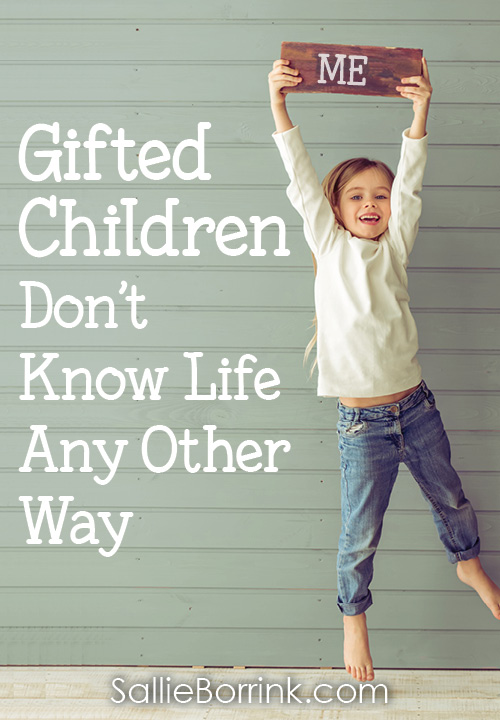


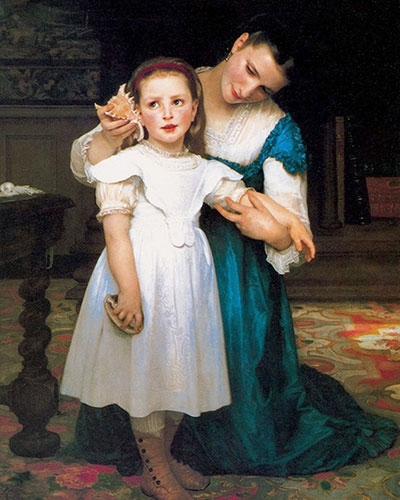

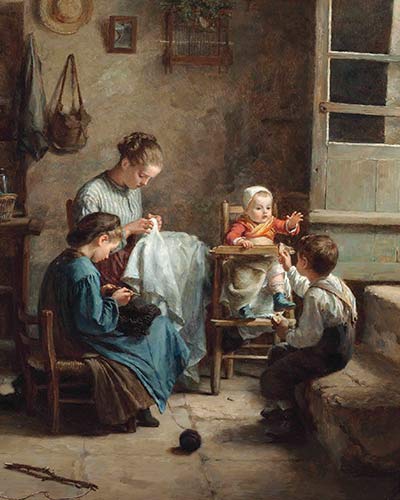


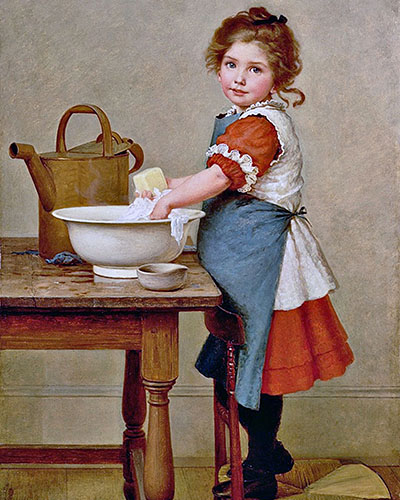


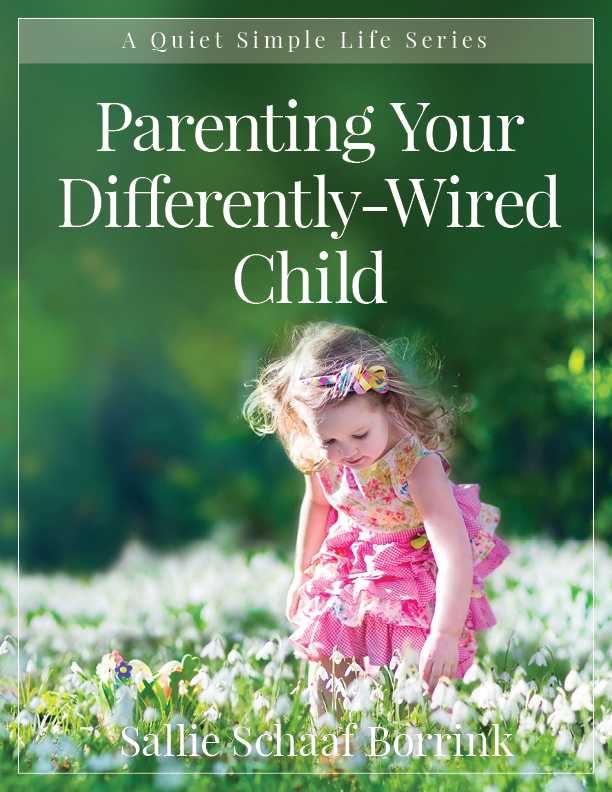





 Creative Writing Printables & Prompts For Kids All Year
Creative Writing Printables & Prompts For Kids All Year
My girls still play with stuffed animals, too, and for the same reasons you describe. My 10 year old has had Little Wolf forever – he’s her wingman.
I love the positive angle you take here, Sallie. Great post!
Love this: “The reality is that I don’t know how people go through life and don’t take in information and think all the time because it is all I know.” Boy oh boy can I relate! I never understood people who could just accept a statement and keep going – I always wanted to know more: to question why, how does it work like that, and so on.
My mom’s revenge – my oldest son. He has that in spades!
Great post – and kudos mamma for figuring out your daughter’s needs instead of dismissing them or ignoring them. Like babies who cry for a reason, our gifted kids have a purpose to everything they do.
From my own perspective, I completely connect with feeling compulsive about reading. For me, it is feeling creatively compulsive. I make things…all sorts of things. From a parenting perspective, I LOVE this: “However she is wired, that is what is normal to her. It might not even make sense to you, but she needs you to understand and honor it.”
I read recently that the years of having children under 6 are the unhappiest of most adults’ lives – that certainly rings true for me, for the reasons you give here.
I also resonate strongly with what you say about attributing your traits with your personality rather than your giftedness. Me too! I like to think that thanks to blog hops like this one we are helping get the message out there that giftedness is much more complex than most people realise.
I’ve watched my daughter move from one passion to another over time. Last year it was gymnastics, this year it’s music. Every passion is a full-immersion experience, just as you describe. She doesn’t know how to be any other way, as you say.
Thanks for a great and thought-provoking post!
You’ll relate to this. My grown teenage son still has drawers filled with his stuffed animals. They are friends from his single kid childhood. He entrusted the most important of them all, a small plush he had acquired on a very special vacation that held tremendous sentimental value, to his girlfriend. This little guy had accompanied him to three new schools hidden in his backpack as a token of love and comfort in the face of uncertainty and hostility. When they broke up, she told him in teenage dramatic fashion that she never wished to hear from him again, and he honored that. His beloved little plush remained in her safe keeping until I happened to learn of it. She and I were on good terms, so I asked for it back, but she had tossed it. It genuinely feels like the death of a beloved friend.
Chipper,
Oh dear. I cannot imagine. I do totally relate to that as the parent of someone who loves her stuffed animals. It’s amazing how important they can become to some children.
Best wishes,
Sallie
This was a wonderful snippet of information I needed today. We are on the brink of having two out of our four children tested for giftedness. It has been a long journey. One not even started by me but by my husband’s aunt who has lived through that world with her own children and she cared enough to take me aside and say, “Your family is eccentric. And it’s good. Here’s why…”
“The reality is that I don’t know how people go through life and don’t take in information and think all the time because it is all I know.” What a resonating statement with me. And to be honest, this is something I’ve struggled with because I see others who appear complacent to not know information and it’s bewildering.
Interestingly, because I’m also a “voracious reader” like yourself, I was shocked to learn through all my research on gifted that “giftedness” didn’t sound all that special to me as it basically DESCRIBED me (and my siblings). What started off as a mission to better understand our children and determine whether their social quirks truly needed to be corrected or not, has now resulted in me finally understanding who I am.
It’s humorous and amazing how God orchestrates certain things in life to fall into place at just the right times.
Kayla,
Thanks for your great comment! What a blessing to have an aunt who was willing to help by pulling back the curtain to help you see what was going on with your kids.
It is kind of a weird feeling when you read about gifted kids and realize what you thought was normal because it is all you know really isn’t normal.
My prayer for this site has always been that the right people will find the right post at the right time. I’m always encouraged when I hear that is the case. 🙂
This post is very well stated. I am still trying to understand how “normal” people think so that I can stop acting “weird” around them. I do a pretty good job most of the time, but sometimes in conversation a topic will come up that I’m excited about or knowledgable about and I’ll light up and start talking and then I’ll see that uncomprehending look on the other person’s face and I’ll know I blew it.
My mom and sister are more neurotypical. My dad is like me, but he’s extremely reserved and was in denial of his own giftedness while I was growing up and honestly, he still is. I was called crazy and weird and mocked and ridiculed for most of my childhood. At home. Where it’s supposed to be safe.
I didn’t realize my problems relating to people were even related to my intelligence (which I knew about, but I always associated friend and family issues with personality) until I was in therapy for depression when I was 44. The positive was that my therapist was able to get me on the right track and I’m able to support my two gifted kids and husband (yep, we’re an eccentric family). I’m still blown away by the wonder of it all, and I still am dying to know what life is like for normal people. It has to be so different. But I know I can’t be happy without what most people would consider overthinking. It’s a part of me.
I’m just discovering your website and I’m enjoying it thoroughly. Thank you for sharing your life.
Hi Sarah,
For some reason I didn’t respond to your comment when you left it. I hope you see this!
It is sad that your home wasn’t a safe place to be supported. I think this is true for so many gifted kids. They don’t fit the “norm” and so they are labeled and considered troublemakers or weird by those around them. What a terrible loss when we don’t support these kids who have so much to offer the world in their own unique ways.
I’m glad you can support your own children and husband with their needs. Your children are fortunate to have a mother who understands.
I, too, wonder what it is like to be “normal” and not have an overactive mind. Weird question (that you don’t have to feel obligated to answer) but do you find you have a higher need for sugar than the average person? I started doing some reading and am trying to understand the connection between having an intellectual overexcitability and having a higher need for sugar because the brain goes through it more quickly to support all the mental activity. I’m always curious to hear from other people who have an intellectual overexcitability if they see themselves needing more sugar than the average person.
Thank you for your comment and, again, I apologize for missing it!
Sallie
Sallie,
Thanks for your response. It’s comforting to hear back from someone who understands. It’s dificult to find people in real life to talk to about this topic.
I DO have an excessive need for sugar. My dad does too, and I’ve noticed it with my eldest child in particular. I never thougth about it any context other than I have a sweet tooth, or even addiction to sugar. That’s interesting- I’m going to research that (of course).
Hi Sarah,
I would have to dig around to find those sugar links. It’s something I might research more after the first of the year. I think I read both pro and con coverage of it, but it makes sense to me anecdotally.
Once I read about that idea I could think of several people from over the span of my life who fit the profile. There’s just so much we don’t know about how the body works, especially the brain.
Have a Merry Christmas!
Sallie
Dear Sallie,
I know this is becoming a dated article, but I recently came back upon it and noticed your most recent comments about an excessive need for sugar possibly linked to higher intelligence. If you have insightful, credible resources I would love to review them as this is definitely ME and my sisters and mom. We’re always trying to go on diet cleanses because we’re aware we consume an unhealthy amount of sugar compared to others (in spite of actually having healthy diets otehrwise) and none of us are sure as to why we have such strong cravings for it.
Hi Kayla,
I haven’t forgotten about your question! I started looking back to see where I had read that and what information I had collected. I’d like to do an entire post on it, to be perfectly honest. There is information out there, but it’s like what the researcher discovered in my post about gifted women being stressed out – there isn’t much out there that studies this specifically. It seems strange, but there really is not enough research out there about gifted kids and gifted people in general. That in and of itself is worthy of research.
I have a post started and I’ll see if I can get it done!
Sallie